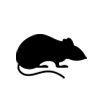This review was commissioned by and originally published in Stuff (and associated newspapers) in June 2019
In her latest novel, Kiwi journalist and author Karyn Hay has created characters who are determinedly unlikeable. It makes for a dissonant reading experience: the writing is excellent but spending time with these people is grim.
Winged Helmet, White Horse is a novel about a middle-class London couple, Tim and Natasha; unhappily married parents to four-year-old Marigold, who is refusing toilet training. The story is framed by Hermes, the ancient Greek god of literature, who in the first and final chapters addresses the reader directly. “Pleased to meet you, hope you guess my name, etc. OK, settle down, I’m not Satan, I’m Hermes. Psychopomp. (I escort souls to the Afterlife, basically.)” Hermes sets the tone of chatty with an undercurrent of viciousness that continues throughout the book.
Hermes introduces us to Tim with a warning: “Some of you won’t like him that much, so feel free to loosely interpret the word ‘hero’.” Tim is an alcoholic who has recently joined AA and stopped drinking; one of many secrets he keeps from his wife. He has written a book of poetry that was well received, but is failing to write another. He has also developed tinnitus, an inescapable sound that seems to act as a constant reminder of his shame and self-loathing. One day Tim randomly follows a stranger off a train, picks up her discarded receipts, and begins stalking her; kidding himself that this behaviour is harmless and maybe even counts as love. “Yep, that old quest for pure and untroubled love. Winged helmet, white horse. Where’s me pigging chalice?”
Natasha, who stays at home to look after Marigold, is desperate to get the little girl out of nappies in order to save face when Marigold starts at the fancy school they can’t afford. Natasha watches a lot of true crime shows, where she picks up tips for her half-hearted fantasy of murdering Tim. Much like Marigold, their pet cat has responded to the rife tension in the household by stress-peeing all over the place. Faced with the possibility of having to actively care for their pet, Natasha starts scheming instead how she can get the cat put to sleep. She has a best friend, Claire, who she also doesn’t really like: “Natasha wondered why Claire was wearing lipstick. It was a bright pink colour that didn’t suit her … ‘I love your lipstick,’ Natasha smiled at her.”
A sticky film of unpleasantness coats every page of Winged Helmet, White Horse. There are many sentences I loved – “The rest of the day lay twisted in his mind like a basket of wet washing” – and there’s an energy to the writing that keeps the reader engaged. But it’s an energy fuelled by spitefulness and increasingly tinged with desperation. When the book reaches its third-act twist and final decisive event, which are presumably intended as the emotional climax, both left me cold. In the end, I went where Hermes led me: standing aside from the action, and commenting from afar about how dreadful these people are.

